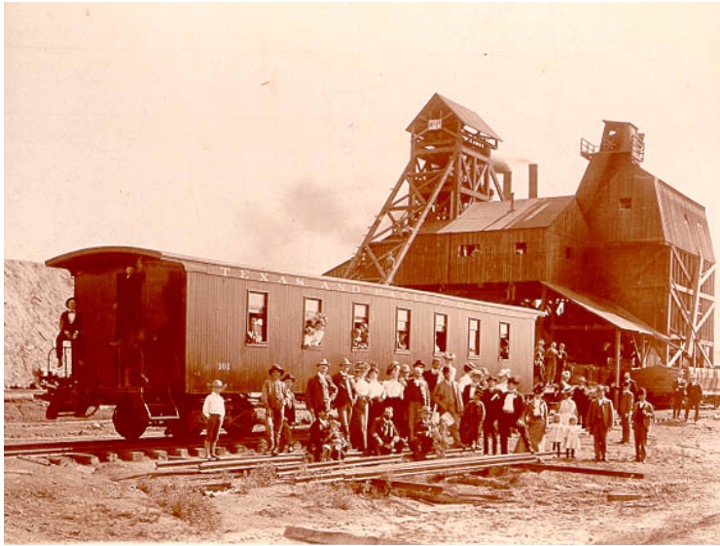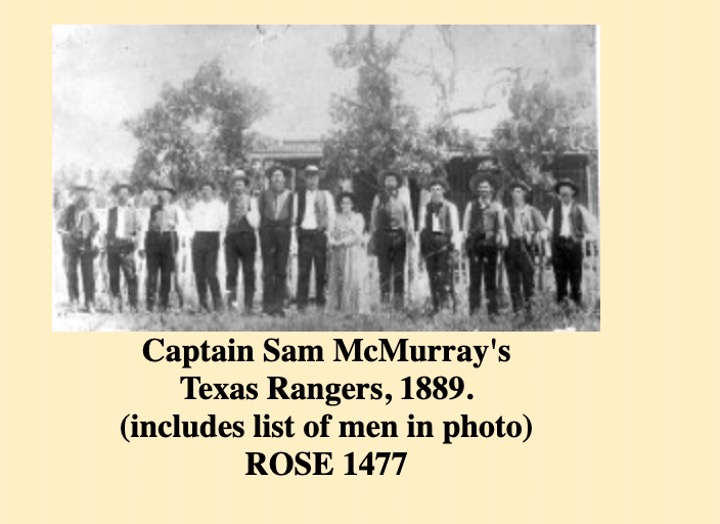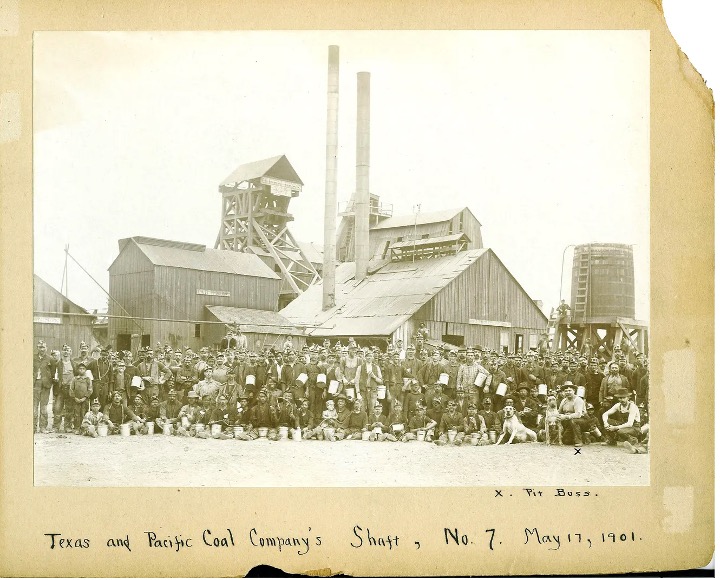Rangers Captain Sam McMurry, from Company B, was sent to Thumber, Texas in the Spring of 1889 to take stock of an ongoing conflict between T&PCC management and its miners.

T&PCC’s workers, primarily miners, were on strike and demanding better working conditions. McMurry had been sent by Adjutant General King to the strike to prevent a violent outbreak, but ostensibly on instructions to remain neutral.
Despite meeting early on with both miners and management, McMurry quickly took the side of management and from there on out made little to no effort to prevent or deter conflict.
Andrew Graybill describes McMurry’s negative attitude towards the striking miners as “[leading] to an unequal application of the law and thus spawned a series of repressive measures, including arrests on charges of ‘rioting’ and ‘intimidation’” pg 182.

He goes on to cite one striker’s opinion of the Rangers, describing the miners as “being abused, imposed upon, and mistreated by a company of the state Rangers, placed there it appears for the purposes of bulldozing and assisting ‘corporate greed’” pg 183.
Some miners filed complaints against the Rangers brutality in their “mediation” of the strike, and were met with support from local officials. And yet, the Rangers would only be charged with the fine of a dollar.
The support of the Rangers allowed T&PCC to look elsewhere for labor, but their recruitment of strike-breakers from the North largely failed. They were able to sign up several men, primarily African American men, to work the mine later in Spring.
McMurry was involved in transporting these men to the mine, ideally out of sight of the striking miners. Upon arrival, however, many of the men with the freedom to do so would join the strikers.

The miners would continue to hold their strike through the summer, but with the protection of the Rangers, T&PCC began to turn a profit. Even so, when Adjutant General King declared this operation a success for the Rangers and for the company, miner activism did not cease.
McMurry and other Rangers had to return on and off for much of 1890 to aid T&PCC management in Thurber, which is a testament to the strength of the workers movement at the time.

The original task for McMurry was not to protect the interest of T&PCC’s management, but the use of the Rangers to protect the economic interests of elites in Texas was not new.
Even so, McMurry’s personal distaste for and subsequent policing of the strikers, as well as the publicity for this, made the Rangers known as a force for the consolidation and privatization of wealth.
This thread is a part of the #OTD in Ranger history campaign that @Refusing2Forget is running this year. Follow this twitter handle or https://refusingtoforget.org/ranger-bicentennial-project/, and visit our website https://refusingtoforget.org/ to learn more.
The key source for this thread is Policing the Great Plains: Rangers, Mounties, and the North American Frontier, 1875-1910.
Refusing to Forget members are @ccarmonawriter @carmona2208 @acerift @soniahistoria @BenjaminHJohns1 @LeahLochoa @MonicaMnzMtz and @Alacranita , another co-founder is @GonzalesT956.
@emmpask @sdcroll @HistoryBrian @LorienTinuviel @hangryhistorian, @ddsanchez432,
@elprofeml, and @littlejohnjeff are other scholars working on this project.

